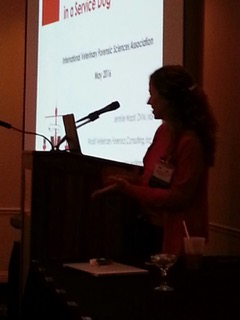|

Woolf Veterinary Forensics Consulting, Inc. can provide the following services:
- Education! Dr. Woolf loves to educate and has provided lectures for all age groups from elementary students to adults! Lectures are tailored to be age appropriate and to meet the needs of the audience. There are lectures on:
- Identifying different types of animal abuse
- How to document animal abuse
- How to collect evidence
- The Link: the connection between animal abuse and interpersonal violence
- The veterinarian’s role in abuse cases including mandatory reporting
- How to write a report and testify
- And if you have a special request for a subject, let me know!
- Consultation
- Review veterinary medical records and necropsy/autopsy reports
- Pull together multiple sources of information such as veterinary records, police reports, surveillance videos, and more to write one cohesive report
- Evaluate cases for prosecutors and other attorneys
- Be an expert witness for court
- Investigation (limited to cats and dogs)
- Perform examinations on live animals suspected of having been abused
- Perform forensic necropsies on deceased animals
- And if Dr. Woolf is not the right person for your job, she will try to help you find someone else who can help.
|
|